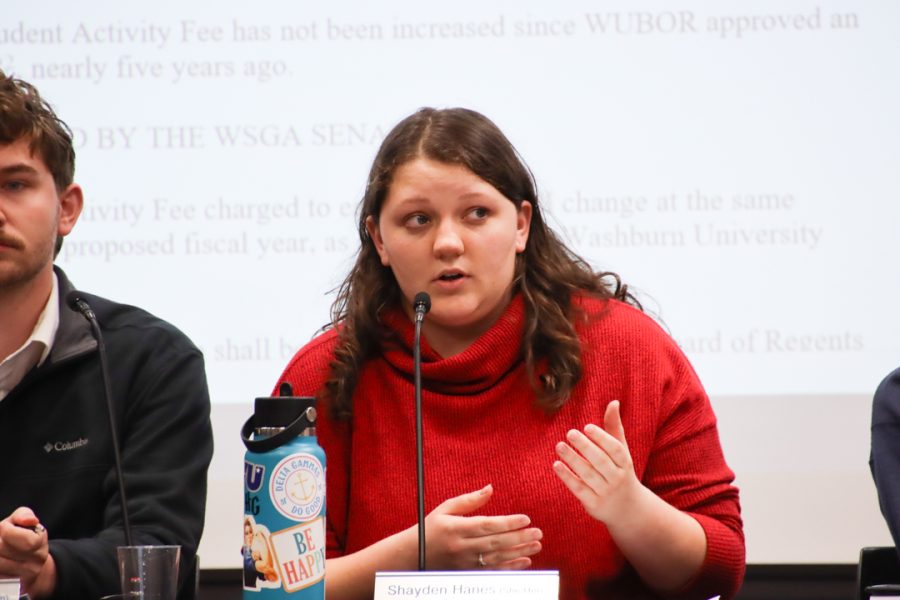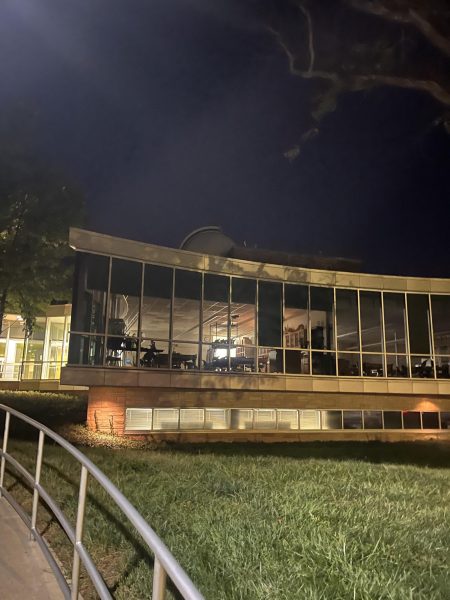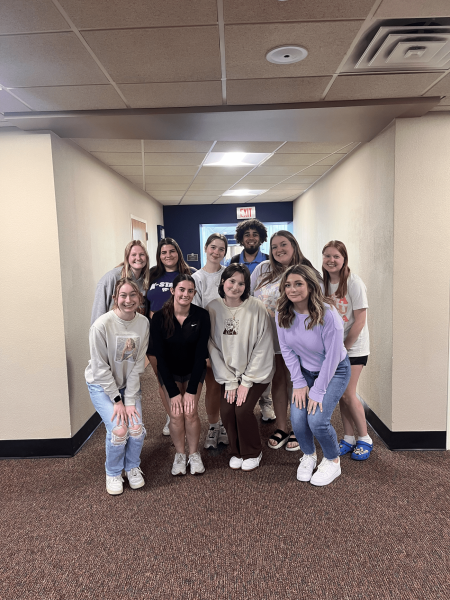WSGA proposes change in student activity fee
In response to rising inflation, WSGA discussed a new bill that would affect student fees at their all-senate meeting March 8.
The bill, proposed by Shayden Hanes, WSGA president, and Quinn Leffingwell, WSGA vice president, would cause the student activity fee to change at the same percentage rate as the university’s tuition, as approved by the Board of Regents.
Washburn’s student fees were moved to a flat rate of $55 in spring 2018 during the Surritt-Henry administration. The student fee helps fund various organizations, activities and services on campus for students to enjoy and use at not cost.
“Tuition over the last seven years has increased at max 3%,” said Hanes. “And so our idea with this is to increase the student activity fee, instead of it being a flat rate, to gradually increase it at the rate of tuition.”
The hope is that this bill will prove to be sustainable in the future. With rising costs and inflation, WSGA wants to ensure it will have enough funds to continue to allocate to organizations on campus.
Hanes and Leffingwell have not presented this idea to the Board of Regents, as they wanted to get the opinion of the senate first. According to Hanes, JuliAnn Mazachek, president of Washburn University, is in support of the bill.
Members of the senate showed concerns over the necessity to raise student fees. Many senators argued against the bill and thought that increasing the fee would be harmful to the student population.
“I’m also thinking about those students that can barely afford to eat, 3% might be a big deal to them,” said Ariel Smith, WSGA senator.
During discussion, Antonio Martinez, health and wellness committee chairperson and the incoming WSGA president, proposed that the bill be tabled indefinitely. Tabling the bill indefinitely would mean that the bill cannot be brought before the senate again. This is different than just tabling the bill, which would mean it would be heard at the next senate meeting. The senate voted against tabling the bill indefinitely.
After a lengthy debate between the senate, it was voted to table the bill until the next senate meeting March 22.
Edited by Glorianna Noland and Christina Noland
Your donation will support the student journalists of Washburn University. Your contribution will allow us to purchase equipment and cover our annual website hosting costs.















